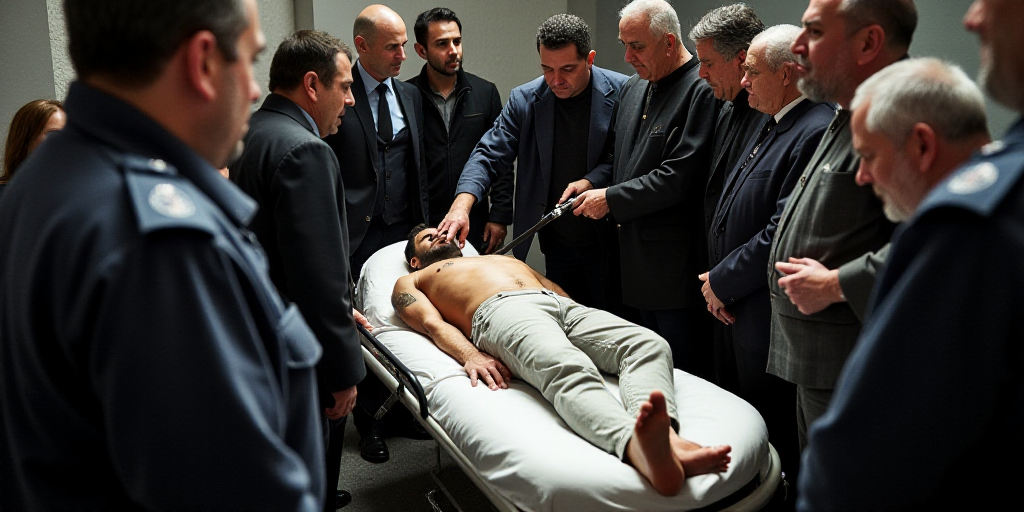Background on Key Figures and Context
On Monday, Israel targeted the Nasser Hospital in Gaza, resulting in at least 20 fatalities, including five journalists working for Reuters, Associated Press, and Al Jazeera among other outlets.
Hussam al-Masri, a Reuters cameraman and contractor, perished near a live broadcast setup managed by Reuters on an upper floor just beneath the hospital’s roof in Jan Yunis during the initial attack, according to Palestinian health officials.
Hospital officials and witnesses reported that Israel attacked the location for a second time, killing additional journalists along with rescuers and medical personnel who had rushed to the scene for assistance.
- Mariam Abu Dagga: Collaborator for Associated Press and other media outlets.
- Mohammed Salama: Reporter for the Qatari broadcaster Al Yazira.
- Moaz Abu Taha: Freelance journalist who collaborated with various news organizations and occasionally Reuters.
- Ahmed Abu Aziz
- Hatem Khaled: Reuters contributor who sustained injuries.
Reactions and Investigations
The Israeli Defense Forces (IDF) acknowledged the attack on the Nasser Hospital area and stated that the Chief of Staff had ordered an investigation.
The IDF regrets any harm caused to uninvolved individuals and does not target journalists as such. The IDF acts to minimize harm to uninvolved individuals while ensuring the safety of its forces.
Reuters expressed deep sorrow over the death of Hussam al-Masri and the injuries to Hatem Khaled, stating they are urgently seeking more information and requesting assistance from Gaza and Israeli authorities for medical aid for Khaled.
Associated Press (AP) expressed shock and sorrow over the death of Abu Dagga and other journalists, noting that their reporter frequently visited the hospital for reports, including recent ones on malnourished and undernourished children.
The Palestinian Journalists Syndicate condemned Israel for the attacks, stating they represent “an open war against free media with the aim of terrorizing journalists and preventing them from fulfilling their professional duty to expose crimes to the world.”
Impact on Palestinian Journalists
Since the war began on October 7, 2023, over 240 Palestinian journalists have perished due to Israeli fire in Gaza, according to the Palestinian Journalists Syndicate.
Two weeks prior, Israel killed prominent Al Jazeera correspondent Anas Al-Sharif and four other journalists in an attack. Israel acknowledged targeting Sharif, claiming he worked for the Hamas militant group—a denial made by Al Jazeera.
Israel has barred all foreign journalists from entering the Gaza Strip since the war’s onset in 2023.
Throughout the conflict, Palestinian journalists have reported from the territory, with many having long-standing experience working for international media outlets like Reuters and Associated Press.
Key Questions and Answers
- Who were the journalists killed in the attack? The journalists who lost their lives included Mariam Abu Dagga (Associated Press and other media outlets), Mohammed Salama (Al Yazira), Moaz Abu Taha (freelance journalist collaborating with various news organizations), Ahmed Abu Aziz, and Hussam al-Masri (Reuters cameraman).
- What was the reaction from Reuters and Associated Press? Reuters expressed deep sorrow over the death of Hussam al-Masri and requested urgent information and medical assistance for the injured Hatem Khaled. Associated Press conveyed shock and sorrow over the death of Abu Dagga and other journalists, highlighting their reporter’s frequent visits to the hospital for reports.
- What is the Palestinian Journalists Syndicate’s stance on these attacks? The Palestinian Journalists Syndicate condemned Israel for these attacks, stating they represent an open war against free media aimed at terrorizing journalists and preventing them from exposing crimes.
- How many Palestinian journalists have died since the war began? Over 240 Palestinian journalists have perished due to Israeli fire in Gaza since the war started on October 7, 2023.






